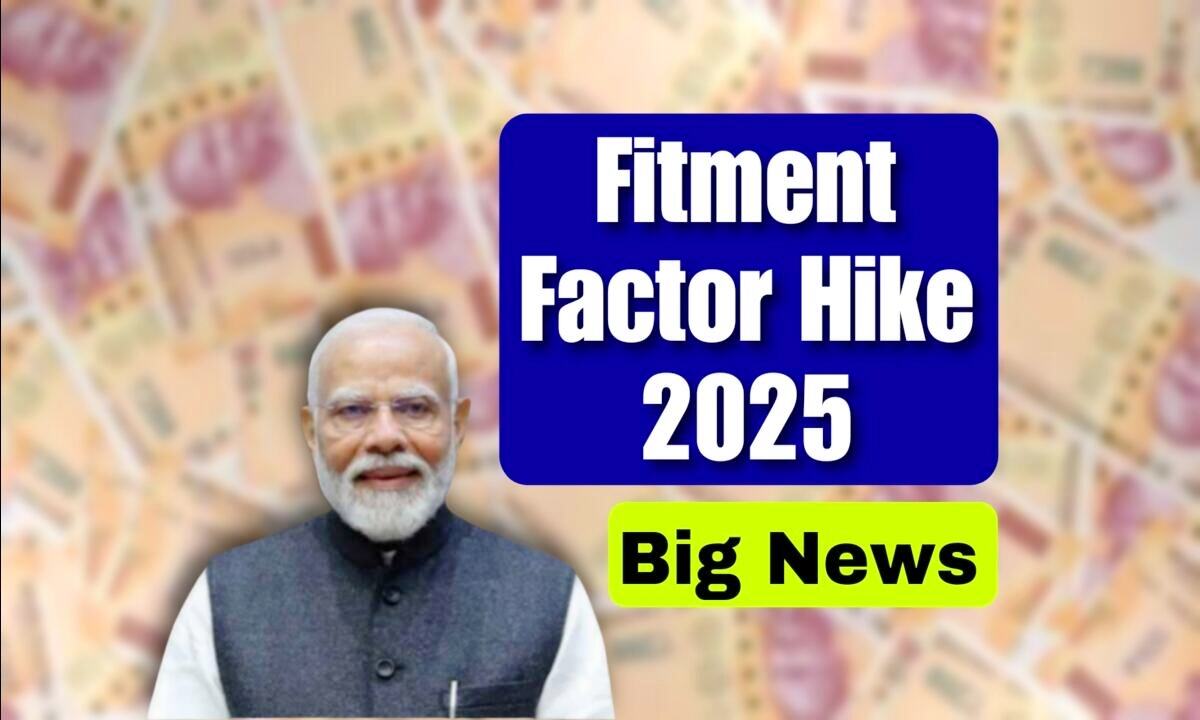8th Pay Commission: Before its expected rollout, the 8th Pay Commission has started to gather steam as a duel of bargaining styles, ever so enticing from millions of potential central government employees. Of particular interest in the new pay structure is the fitment factor, which by design directly intervenes in salary revision procedures. No official announcement has yet been released, but it is already argued that the government might raise the fitment factor considerably in the 8th Pay Commission, perhaps going all the way up to 3.68 or even beyond. What would it then mean for the average government employee?
What Is The Fitment Factor?
The fitment factor is, that much being clear, a multiplier for determining the revised salary of central government employees under a new pay commission. Simply put, it is the number which a current basic pay of an employee is multiplied with to determine the new basic salary.
Under the 7th Pay Commission, the fitment factor was 2.57, which meant that a basic salary of ₹10,000 was revised to ₹25,700. The same formula is expected to apply in the 8th Pay Commission, but with a higher multiplier, expected around 3.00 to 3.68, this will amount to a substantial increase in the new salaries.
How It Will Impact Salaries
The potential impacts can be best explained via an instance: The effect would be as follows in case of an employee whose present basic pay is Rs 18,000:
- Rs 54,000 would be the basic salary at the fitment factor of 3.00.
- Rs 66,240, as against, would be the basic salary on the fitment factor of 3.68.
This does not take into account various allowances such as House Rent Allowance, Dearness Allowance, and Travel Allowance. With all benefits included, a whopping increase of 35-45% can take place in the monthly remuneration of central government employees, thus positively affecting their cash package.
Who Gets A Hike?
The fitment factor revision under the 8th Pay Commission will benefit-a-list:
- Central government employees (about 50 lakh)
- Defence personnel
- Railway employees
- Central autonomous body staff
- Pensioners, as an increase in pension is directly related to an increase in the basic pay structure
The cascading effect will not be limited to just these, but will definitely trickle down to state government employees, often shadowing central pay commission regimes with slight adaptations in their own pay commissions.
Why The Push For An Increase?
Purchasing power has been notably reduced among government employees as a result of inflation and rising living costs. The unions and associations of employees had asked for a higher fitment factor on the argument that the factor of 2.57 used during the 7th CPC was insufficient in the present economic scenario.
A higher fitment factor in the 8th Pay Commission is more than just about money. It is about restoring the real income of employees so that they have a better life. The higher pay scales affect the morale of the employees in any given department, their retention in its service, and their productivity.
When Will 8th Pay Commission Be Editable From?
With no official announcement for it yet, we are apting by 2026 when possibly it shall be announced during Union Budget 2025-26. Preparations and recommendations are already considered to be underway, and shortly, there may be determination of an official committee for the evaluation and finalization of the scheme.
